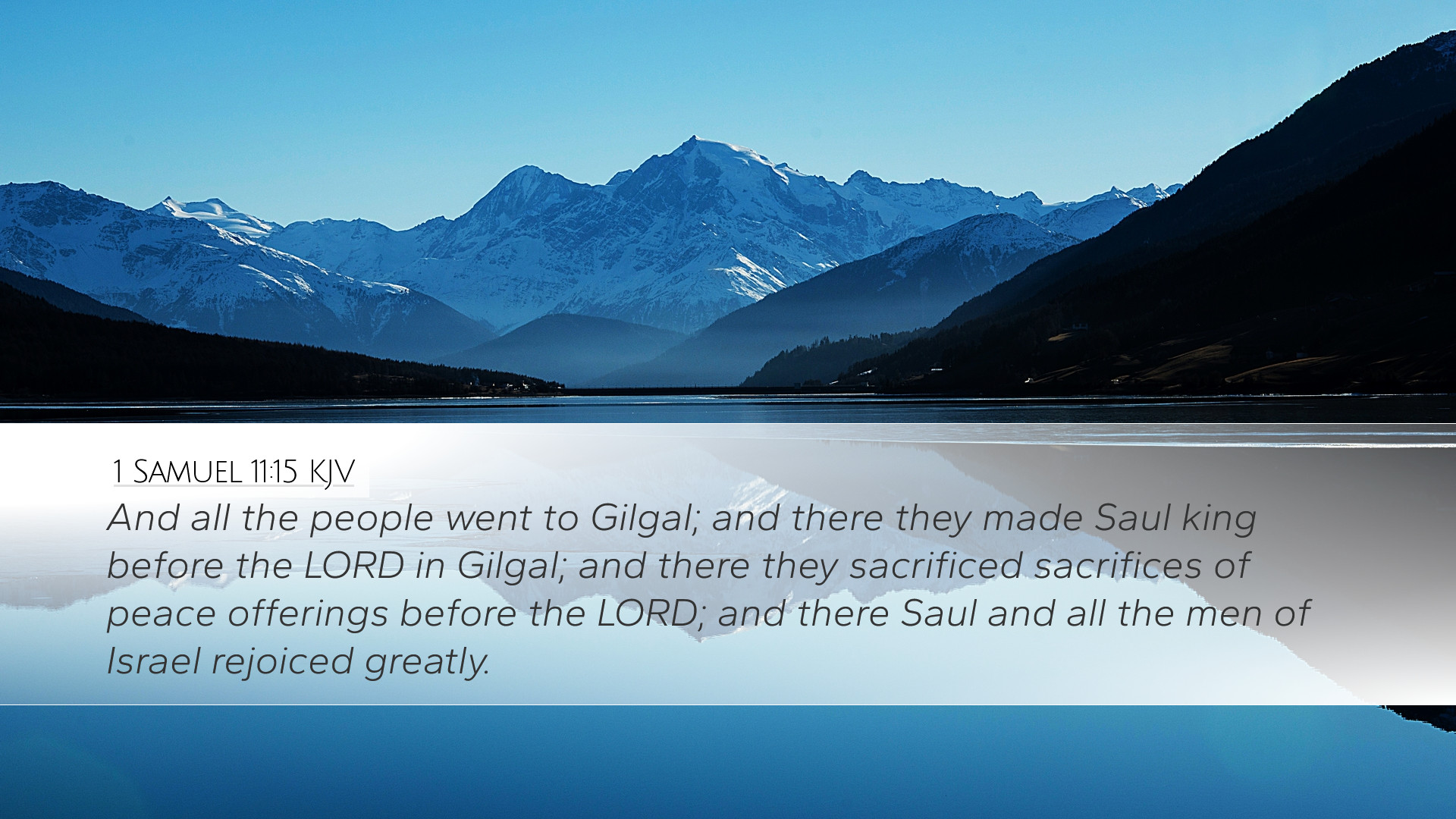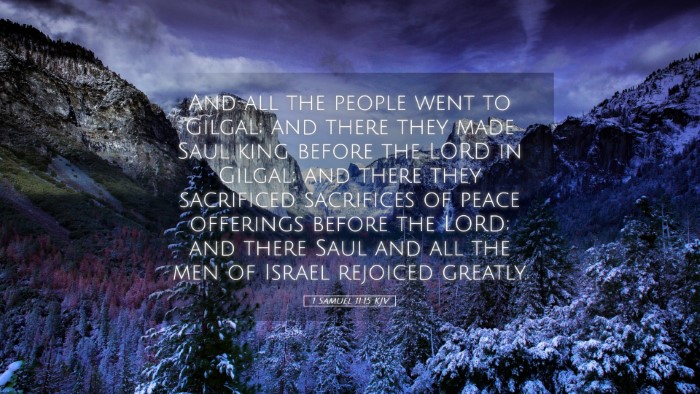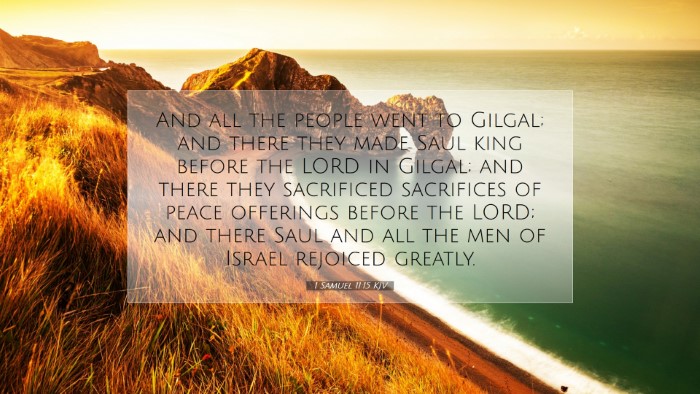Commentary on 1 Samuel 11:15
Verse Text: “And all the people went to Gilgal; and there they made Saul king before the Lord in Gilgal; and there they sacrificed sacrifices of peace offerings before the Lord; and there Saul and all the men of Israel rejoiced greatly.”
Introduction
This pivotal moment in the history of Israel marks the formal anointing of Saul as king. It represents a significant transition from the period of the judges to a monarchy, reflecting the people’s desires as well as God’s sovereign choice. This passage offers rich theological insights as well as practical lessons for believers today.
Historical Context
The events surrounding 1 Samuel 11:15 occur shortly after Saul’s successful military engagement against the Ammonites, which serves as a prelude to his confirmation as the king of Israel. This context is crucial for understanding the sentiments of the people and the religious significance of their actions.
Faith and Leadership
Matthew Henry highlights that Saul's victory over the Ammonites prompted the nation to rally around him more ardently. The people recognized Saul not merely as a military leader but as one chosen by God to lead them. This reflects the biblical principle that God often appoints leaders in alignment with His divine will.
The Role of Gilgal
Albert Barnes notes that Gilgal was a site of great significance for Israel. It was here that the Israelites camped after crossing the Jordan River and celebrated the first Passover in the Promised Land. Therefore, the choice of Gilgal for Saul's coronation emphasizes both the continuity of God's plan and His covenant with Israel.
Spiritual Acts: Sacrifices and Rejoicing
Adam Clarke emphasizes the ceremonial aspects of Saul’s coronation, particularly the sacrifices made. The peace offerings were not just a means of worship; they symbolized the people's gladness and their covenant relationship with God. This sacred act reinforces the idea that leadership in Israel was deeply intertwined with spiritual fidelity.
Theological Implications
The Sovereignty of God
This passage underscores the sovereignty of God in the appointment of Saul as king. His anointing reflects God’s choice amidst the people's desire for a king. Matthew Henry notes that God often works through human choices while retaining ultimate authority over the outcomes.
Human Response to Divine Leadership
The reaction of the people in rejoicing is a response to the provision of a leader during a time of crisis. This teaches us about the importance of recognizing and celebrating God’s provisions in our own spiritual journeys. Barnes suggests that the people’s joy indicates a collective acknowledgment of God’s presence among them through their chosen leader.
The Nature of Kingship
In selecting Saul, the passage also poses questions about the nature of kingship itself. Adam Clarke posits that the Israelite conception of kingship was intended to reflect God’s authority and serve the needs of the people. However, as the narrative develops, one sees the complexities and challenges of human leadership apart from divine guidance.
Practical Applications
For pastors, students, theologians, and scholars, this passage serves as a reminder of the importance of spiritual foundations in leadership. The rituals and sacrifices signify the essential nature of keeping God at the center of leadership and governance.
- God-Centered Leadership: Leaders must seek to align their actions with God's will, acknowledging that true leadership is a service to God and His people.
- Community Engagement: The collective joy and engagement of the people in Saul's coronation illustrate the importance of community in spiritual matters. Leaders should cultivate a sense of shared mission and purpose.
- Recognition of God’s Sovereignty: Emphasizing that God appoints rulers and leaders underscores the need for submission to divine authority even within earthly systems.
Conclusion
The events of 1 Samuel 11:15 encapsulate a critical moment in Israel’s history, characterized by a mixture of divine sovereignty and human desire. For contemporary readers, this passage serves as a rich source of reflection on the nature of leadership, community, and faith in God’s providence. As believers, the challenge remains to seek God's guidance in leadership and to recognize His hand in the unfolding of our personal and communal lives.


